Brian Schweitzer once said, “I’m not goofy enough to be in the House, and I’m not senile enough to be in the Senate.” That was six months ago. We’re about to find out if he thinks he’s senile enough now to be in the Senate.
After longtime Sen. Max Baucus announced last week he will not seek reelection in 2014, all eyes are on Schweitzer as the next Democrat in line to run for Baucus’ seat. Media outlets from the Washington Post and New York Times to state newspapers immediately put Schweitzer at the center of the successor conversation. Progressive groups just as quickly launched campaigns in support of a Schweitzer Senate run. And national political observers shifted their gaze to Montana, where they found a chatty former governor ready to offer up his own strain of noncommittal.
“I’m the kind of guy that, when I see a broke-down pickup, I’ll get out with my tools and try to fix it,” he told The Hill, a Washington D.C.-based newspaper. “And I can tell you looking at Washington, D.C., from Montana, there is no bigger broke-down pickup than the Senate in Washington, D.C.
“I’m not ruling anything out, or anything in.”
The makeup of the 2014 Senate race appears to hinge on Schweitzer’s decision. There are only two formally declared candidates as of now, both Republicans: former Billings state Sen. Corey Stapleton and current Missoula Rep. Champ Edmunds. Other potential candidate names have emerged, including Republican Rep. Steve Daines, former Republican Gov. Marc Racicot, former Republican Rep. Denny Rehberg and Democratic Superintendent of Schools Denise Juneau.
But Montana State University political scientist David Parker doesn’t anticipate any of the big names making a final decision until the biggest name makes his.
“He’s got to move first,” Parker said of Schweitzer. “He’s the key pivotal figure. What he does determines what everyone else does. No Democrat is going to jump in if he does, and I think it would also be foolhardy for a Republican to make a decision before him.”
Schweitzer, 57, has indicated he won’t announce his decision at least until after May 2, when shareholders for Stillwater Mining Company are expected to vote on whether to hand control of the $1.3 billion company to the former governor and a group of investors. Schweitzer joined an attempt to take over Stillwater, which operates two platinum and palladium mines in the Beartooth Mountains, because he said the company has put 1,600 Montana jobs at stake through risky foreign expansion efforts.
But Parker says Schweitzer should wait to tip his hand so other potential candidates have to delay making their own final decisions.
“It would be in his best interest to wait until at least June or July to make an announcement,” Parker said. “But he might decide before then.”
Baucus’ April 23 retirement announcement came as a surprise to many political observers. The six-term senator had given plenty of indication that he was preparing for a run at a seventh term, amassing a $5 million campaign war chest and appearing to place politically strategic votes against gun control and his own party’s budget proposal.
Those votes and other party-bucking votes in the past, such as his support of the 2001 Bush tax cuts, have often alienated Baucus from his party’s left-leaning base. They also help explain the jubilance from progressive groups who have enthusiastically latched onto the Schweitzer for Senate bandwagon.
Howard Dean, former chairman of the Democratic National Committee and the founder of the progressive organization Democracy for America, threw his weight behind Schweitzer.
“Montanans deserve a senator who is willing to take on the lobbyists and corporations who have worked with Republicans to break Washington,” Dean said in a statement.
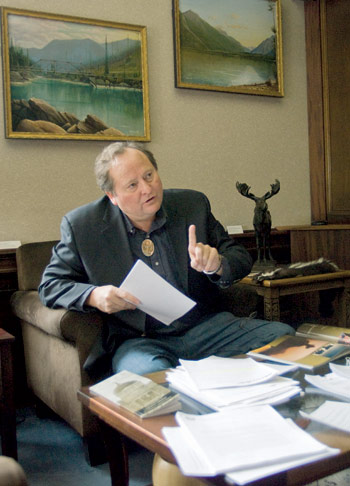 |
|
Gov. Brian Schweitzer is seen in his office in the Montana state Capitol building in Helena. – Lido Vizzutti | Flathead Beacon |
“From his steadfast support for single-payer healthcare to his long record of standing up to big money special interests, I know that Gov. Brian Schweitzer is that populist progressive leader and I’m proud to join Democracy for America in drafting him for the U.S. Senate.”
Given time to reflect on Baucus’ decision, Parker says it makes sense. At 71 years old, Baucus has been in the Senate since 1978. He also served two terms in the U.S. House beginning in 1974. He would be pushing 80 years old at the end of his seventh term and a lot of his longtime colleagues are gone. And, win or lose, a grueling 2014 campaign would likely take a toll on him.
Baucus, who is building a home in Bozeman with his wife, said he wants to retire to spend more time with his family in Montana. Parker says, “I’ll take him at his word.”
“I think he was thinking, ‘I can win, but is it worth it?’” Parker said. “He wants to come home Montana. Who doesn’t want to be in Montana?”
Jim Lopach, a political scientist at University of Montana, says perhaps Baucus felt that Schweitzer was already leaning toward a run: “He was certainly raising money like he was scared of an opponent, which may have been Schweitzer.” Either way, Lopach doesn’t count himself among those who were surprised by Baucus’ decision to retire, given where the senator is at in his career.
Lopach envisions Daines rising to the top of the Republican candidate field. Echoing former Rep. Rick Hill, who endorsed Daines by calling him a “new leader with new ideas,” Lopach thinks the first-term congressman makes sense on various levels as a viable GOP Senate candidate. And he says 2014 is shaping up to be just as pivotal and heated as last year’s Senate battle between Jon Tester and Denny Rehberg.
“I think the race will be as important as the Tester-Rehberg race in terms of party control of the U.S. Senate, so a lot of money will come into the state,” he said.
If Schweitzer doesn’t jump into the race, Parker says Republicans will have the clearer path to victory. But assuming the former two-term governor does run, Parker thinks his presence alone could ward off his most formidable Republican challengers, including Daines, who may decide he’s better off serving more time in the House than going up against Schweitzer.
“If Schweitzer runs, I’m not convinced it’s going to be a very interesting race because I’m not sure the top-tier Republican candidates will look at the race and say, ‘I want to do that,’” Parker said.
The Contenders
From former governors to current state officeholders, here’s a breakdown of who may run for the U.S. Senate seat left vacant by Sen. Max Baucus’ retirement in 2014.
Declared:
State Representative (2010-current)
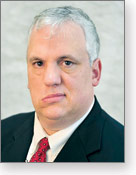 Edmunds is a two-term Republican state representative from Missoula. Considered a conservative legislator, he lacks the name recognition of some of the other more high-profile potential candidates. He announced that he would run for the House instead of the Senate if Rep. Steve Daines enters the Senate race. Edmunds’ website is www.champ2014.com.
Edmunds is a two-term Republican state representative from Missoula. Considered a conservative legislator, he lacks the name recognition of some of the other more high-profile potential candidates. He announced that he would run for the House instead of the Senate if Rep. Steve Daines enters the Senate race. Edmunds’ website is www.champ2014.com.
Former State Senator (2000-2008)
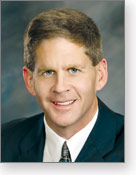 As a two-term Republican state senator from Billings, Stapleton worked his way up the ranks to Senate minority leader. After a few years out of politics, he jumped into the gubernatorial race last year, where he finished second in a crowded GOP primary to Rick Hill. His campaign website is www.coreystapleton.com.
As a two-term Republican state senator from Billings, Stapleton worked his way up the ranks to Senate minority leader. After a few years out of politics, he jumped into the gubernatorial race last year, where he finished second in a crowded GOP primary to Rick Hill. His campaign website is www.coreystapleton.com.
UnDeclared:
Former Montana Governor (2004-2012)
 Since ending his second term as governor, Schweitzer has made a point to brush aside speculation about him running for Senate. But now that Baucus is retiring, he is considered the Democratic frontrunner and the prohibitive overall favorite in the 2014 race. Schweitzer, one of the state’s most popular governors, says he first wants to follow through with his effort to take over the Stillwater Mining Company and then announce his decision.
Since ending his second term as governor, Schweitzer has made a point to brush aside speculation about him running for Senate. But now that Baucus is retiring, he is considered the Democratic frontrunner and the prohibitive overall favorite in the 2014 race. Schweitzer, one of the state’s most popular governors, says he first wants to follow through with his effort to take over the Stillwater Mining Company and then announce his decision.
Montana Superintendent of Public Instruction (2008-current)
 In 2008, Juneau became the first American Indian woman elected to a statewide seat in Montana history by winning the state’s top education post. She followed that victory up with a nail-biter victory over Republican Sandy Welch in 2012. The Harvard-educated Juneau was invited to speak at last year’s Democratic National Convention. She told the Great Falls Tribune she will consider running if Schweitzer doesn’t.
In 2008, Juneau became the first American Indian woman elected to a statewide seat in Montana history by winning the state’s top education post. She followed that victory up with a nail-biter victory over Republican Sandy Welch in 2012. The Harvard-educated Juneau was invited to speak at last year’s Democratic National Convention. She told the Great Falls Tribune she will consider running if Schweitzer doesn’t.
President of EMILY’s List
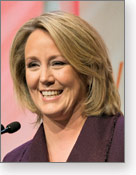 Before taking the helm at EMILY’s List, a national organization dedicated to helping elect pro-choice Democratic women, Schriock ran Jon Tester’s successful 2006 race against Conrad Burns and then served as his chief of staff. She also managed Al Franken’s winning 2008 senatorial campaign in Minnesota. TIME magazine named her in its “40 Under 40” list of rising stars in American politics. She grew up in Butte.
Before taking the helm at EMILY’s List, a national organization dedicated to helping elect pro-choice Democratic women, Schriock ran Jon Tester’s successful 2006 race against Conrad Burns and then served as his chief of staff. She also managed Al Franken’s winning 2008 senatorial campaign in Minnesota. TIME magazine named her in its “40 Under 40” list of rising stars in American politics. She grew up in Butte.
Montana State Auditor (2008-current)
 A veteran of Montana politics, Lindeen served four terms in the state House of Representatives from 1998-2006. She then ran unsuccessfully for Congress in 2006, losing to incumbent Rep. Denny Rehberg 59 percent to 39 percent. Lindeen followed up her loss to Rehberg by winning the 2008 state auditor race and repeating in 2012.
A veteran of Montana politics, Lindeen served four terms in the state House of Representatives from 1998-2006. She then ran unsuccessfully for Congress in 2006, losing to incumbent Rep. Denny Rehberg 59 percent to 39 percent. Lindeen followed up her loss to Rehberg by winning the 2008 state auditor race and repeating in 2012.
UnDeclared:
U.S. Representative (2012-current)
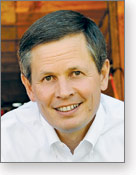 Only four months into his first term in the U.S. House, Daines is already on the short list of potential candidates for the 2014 Senate race and has received an endorsement from former Rep. Rick Hill, who called him a “new leader with new ideas.” The congressman says he is seriously considering running but needs to gather feedback from his constituents before making a decision.
Only four months into his first term in the U.S. House, Daines is already on the short list of potential candidates for the 2014 Senate race and has received an endorsement from former Rep. Rick Hill, who called him a “new leader with new ideas.” The congressman says he is seriously considering running but needs to gather feedback from his constituents before making a decision.
Former Montana Governor (1992-2000)
Years after serving as the state’s attorney general and then governor, Racicot remains a well-known political figure in Montana and a respected voice in the Republican Party. He served as chairman of the Republican National Committee under George W. Bush. Though he hasn’t announced an interest in running, his name was immediately tossed out as one of the GOP’s most formidable potential candidates. Photo Not Available
U.S. Representative (2000-2012)
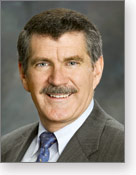 After joining a Washington D.C.-based public strategy firm and saying he had no intentions of running for office again, Rehberg recently said he is receiving encouragement to “take a serious look at this race.” If he decides to run, it would be the third time he has taken a shot at the Senate. Rehberg lost to Baucus in 1996 and Sen. Jon Tester last year.
After joining a Washington D.C.-based public strategy firm and saying he had no intentions of running for office again, Rehberg recently said he is receiving encouragement to “take a serious look at this race.” If he decides to run, it would be the third time he has taken a shot at the Senate. Rehberg lost to Baucus in 1996 and Sen. Jon Tester last year.
U.S. Representative (1996-2000)
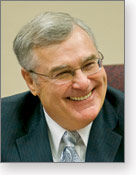 Though he already came out in support of Daines running for the seat, as long as the field is wide open Hill’s name will stay in the conversation. His attempt at a political comeback last year ended with a narrow loss to Democrat Steve Bullock in the governor’s race. He hasn’t publicly indicated an interest in the Senate, but he remains a notable name in the state GOP.
Though he already came out in support of Daines running for the seat, as long as the field is wide open Hill’s name will stay in the conversation. His attempt at a political comeback last year ended with a narrow loss to Democrat Steve Bullock in the governor’s race. He hasn’t publicly indicated an interest in the Senate, but he remains a notable name in the state GOP.